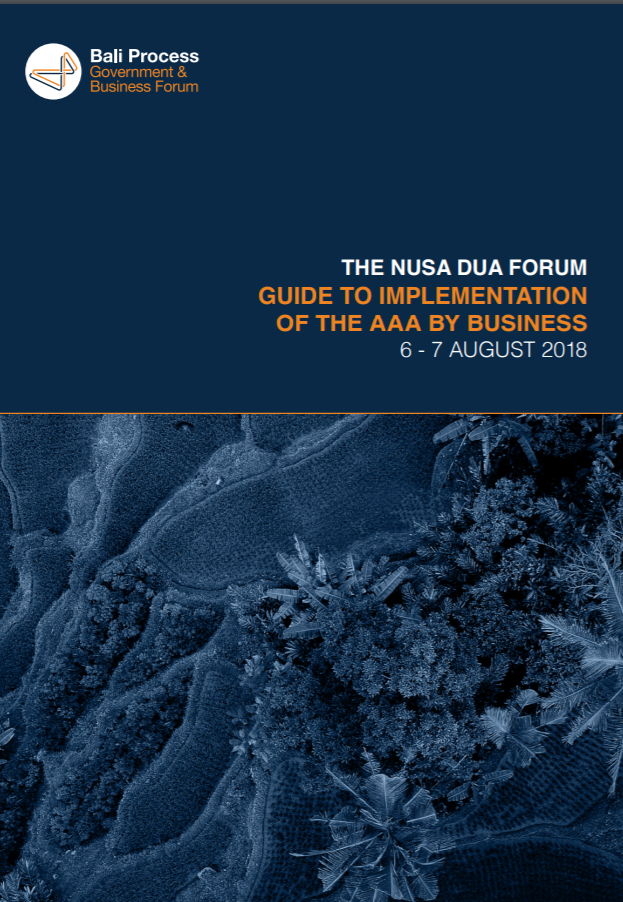This Guide is designed to assist businesses participating in the Bali Process Government and Business Forum with practical examples to implement the AAA Recommendations (2018). This Guide is not designed to be prescriptive or exhaustive, but rather suggested starting point for resources, tools and gidelines only for those businesses interested in finding out more.
Modern slavery affects every country and permeates all economic sectors. Modern slavery exists on a complex spectrum of poor labour rights to the extreme abusive cases of servitude.
It undermines global security and trade networks. No country, industry or business is immune. There are an estimate 40.3 million victims of modern slavery globally. Over 60% of all victims are in Asia and the Pacific region, where the prevalence of forced labour is the highest.
In this Guide, modern slavery is used as an umbrella term to refer to a range of poor and abusive labour practices including all forms of human trafficking, forced labour, debt bondage and the worst forms of child labour. It is not a legal term but it is used as an umbrella term that focuses attention on the commonalities across these concepts.
Essentially, it refers to situations of exploitation, that a person cannot refuse or leave because of threats, violence, coercion, abuse of power, or deception. The net result is that a person cannot refuse or leave the situation.

